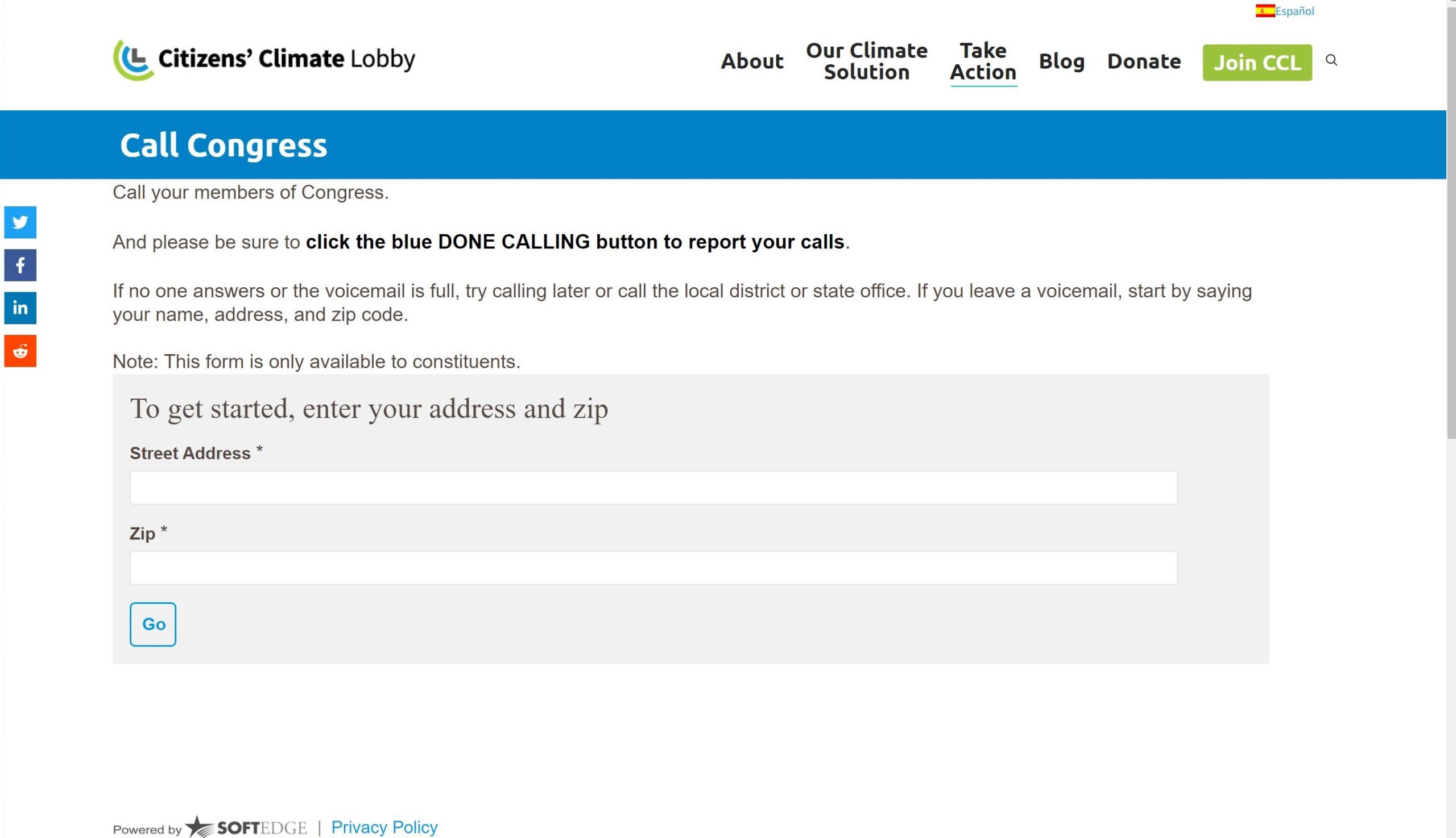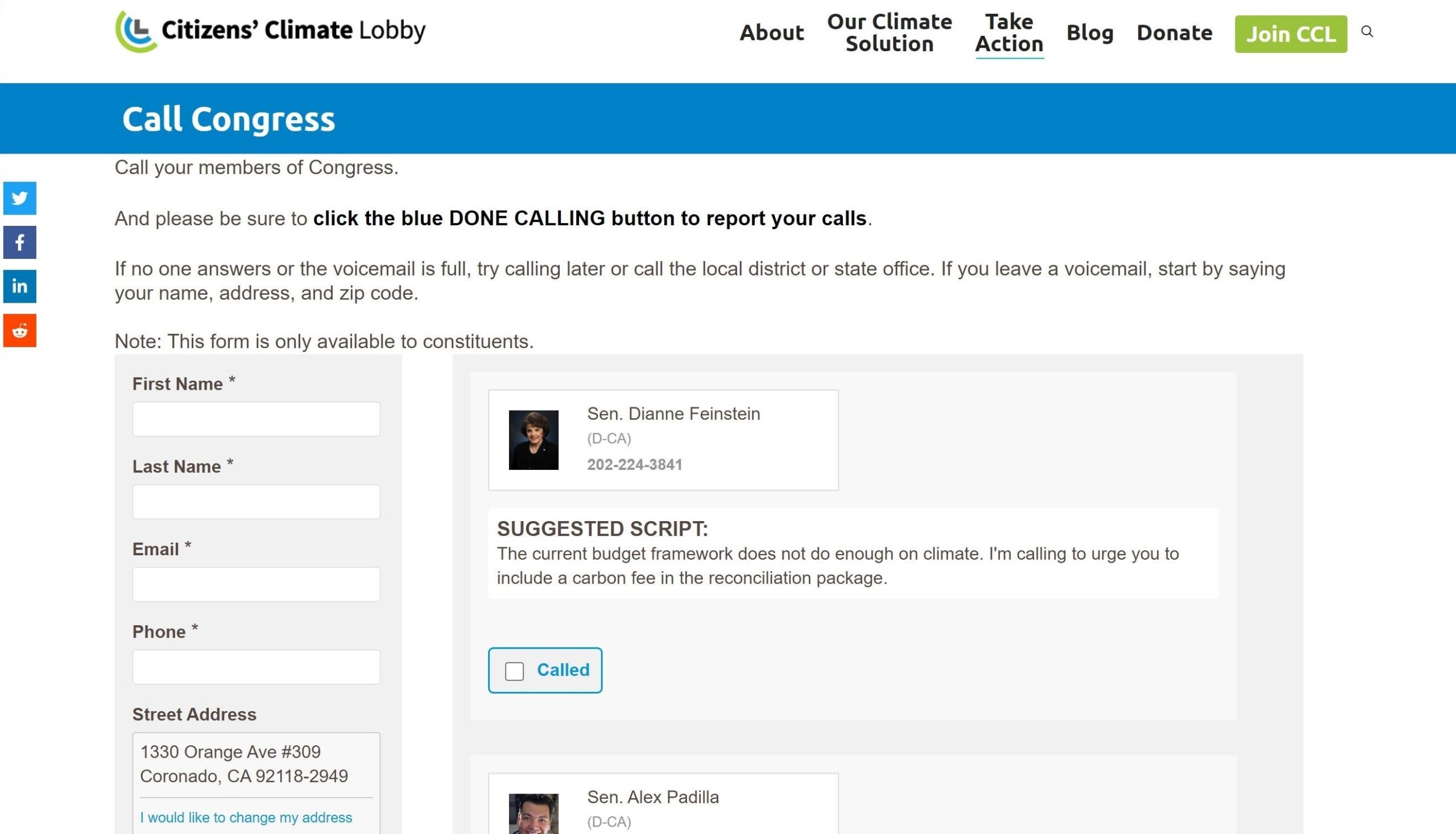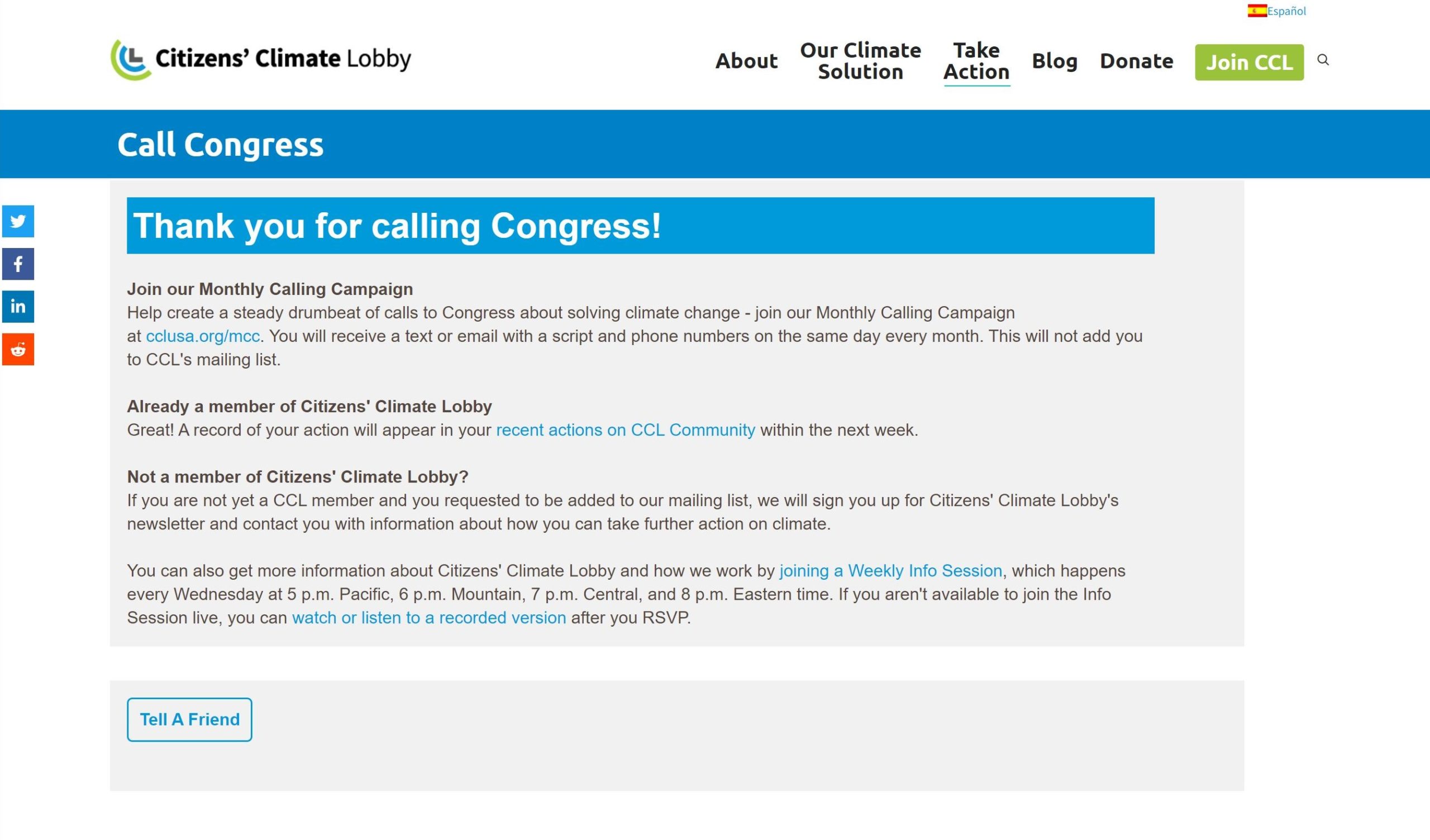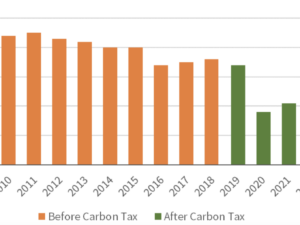By Berit Thorson
As someone who was raised in the Midwest during the era of texting and direct messaging, while home phones became increasingly less common, I understand that phone calls can feel intimidating. Personally, I have felt embarrassed leaving voicemails for my friends, let alone a far-off stranger-slash-politician. Over the past few years, though, I’ve learned that masses of people calling politicians to explain what we care about does make a difference in what they focus on, so it’s worth pushing through the awkwardness to make the call.
I find that knowing the exact steps to take and having a specific script to follow helps ease any phone anxiety I feel. Below, I have compiled the steps to take and written a script you can use when you call your representatives and senators so that you know exactly what you’re getting into and what to say, which hopefully removes any stress from the process. Here’s our how-to guide on how to call your members of Congress.

Find Congressmembers’ contact information with this tool
Use this “Call Congress” tool and enter your street address and zip code in their respective boxes. Press “Go.” This will update the page and take you to a list with your senators and House representatives, along with the phone number to call for each of them.

If there’s no answer, leave a message
When you call each congressional office, you can adjust your message with any personal touches you wish to include. If no one answers or the voicemail is full, try calling later or call the local district or state office. If you do leave a voicemail, make sure to include your name, address, and zip code at the start of your message.
For the most part, during business hours, your call will be answered by an intern or staff member whose job is to take note of your perspective and communicate it within the office. The conversation will consist of a greeting, your message, and the staffer thanking you for your perspective and saying they will pass along the message. Here is a script you can use during your call:
“Hello, my name is [your name] and I live at [your address/state]. I am calling to tell [Senator/Representative name] that the current budget framework does not do enough on climate. I want to urge [her/him] to include a carbon fee in the reconciliation package. As one of the [Senator’s / Representative’s] constituents, it is extremely important to me that [she/he] prioritizes climate policy, like a carbon fee and dividend.”
The most important part of any message to a representative is to remain polite in your tone and word choice, as it will be better received by the person on the other end of the phone. Also, remember that they do not make any final decisions on what stance their office takes on matters; their job is to simply make note of your thoughts. They will not ask questions or argue with you about what you say, and you do not need to try to convince them of anything. The idea of calling a member of Congress may sound scary, but the whole process will likely feel much less intimidating than you expect, and will probably be over in less than five minutes!
Ask your friends and family to call, too!
Once you have made your call, click the “Called” box below the name of that member of Congress. After you finish your call(s), enter your name, email address, and phone number into the form on the left side of the webpage. Select whether you want to subscribe to CCL’s mailing list, whether you want to be remembered by the website, and then click “Done Calling” to mark the call(s) you made. You will be redirected to a new page, where you will be given the option to “Tell a Friend” about the calling campaign.

After you have made your call or leave a message with your contact information, celebrate! You did it! Your voice and perspective are an important contribution to climate conversations, and without all of us asking for change, change will not be pursued. Thank you for joining us in calling (quite literally) for a price on carbon.
Other ways to get involved
Join CCL and volunteer for climate change
Berit Thorson is the CCL Spring 2022 Communications Intern. As an outdoors enthusiast, she is passionate about protecting nature and people from the impacts of climate change, and is excited to be working with CCL toward these goals.





